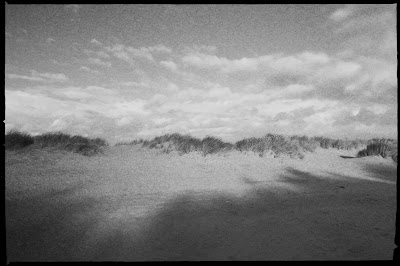Rock or sand, sand or rock? - why the true foundation of the spiritual life might not be what you think it is . . .
A short “thought for the day” offered to the Cambridge Unitarian Church as part of the Sunday Service of Mindful Meditation
(Click on this link to hear a recorded version of the following piece)
—o0o—
Probably like most of you, I have spent a lot of my life looking for a rock where, religiously, philosophically and politically speaking, I could take a firm stand with a clean heart and full belief (pathos). Taking my own cue from a saying of Jesus reported by the writers of Matthew’s (7:24–27) and Luke’s (6:46–49) gospels I have, therefore, always tried to be the wise person who dug and delved and laid a foundation upon rock rather than sand so that, when the flood comes and the river breaks upon my house, it would not be shaken because it had been built so well.
It seems likely the gospel writers ascribed these words to Jesus because they discovered that when they put their trust fully in Jesus’ teachings they found themselves, at last, on what felt like a true foundation and they suddenly knew, with a clean heart and full belief, just how they could and should go on living in the world.
But over the centuries this existential, psychological “rock” has often been transformed into the kind of foundation that is all too easily imagined to exist only in unchanging, “rock” like beliefs, creeds and institutions.
However, if you are here in this church or on Zoom as I speak these words directly to you — or if you are listening to them at home on my podcast or reading them in my blog — then you are likely to be the kind of person who has come to reject the idea that we can, or should, live by such unchanging beliefs, creeds and institutions. It’s certainly why I ended up as a minister in the Unitarian, Universalist and Free Christian tradition.
Consequently, my question these days is, in what would consist the kind of existential, psychological and spiritual “rock” upon which to build that Jesus’ own way of being in the world actually suggests? Well, at least as far as I now understand it, apparently paradoxically, it is something much more akin to learning to build well on moving sand than it is to build on apparently unmoving rock. I say apparently unmoving rock because, looked at properly, even rock is constantly in motion.
Anyway, as I often note, Jesus’ teachings seem continually to centre upon the intuition that if you truly want to know and love God — whatever the word “God” might be taken to mean — you are only going to succeed in so far as you know and love your neighbour as yourself; and, remember, for Jesus, this included knowing and loving one’s enemies. Related to this intuition was his sense that the kingdom of God was never going to be found here or there, built up this or that particular fixed rock, but only within or among us, i.e. in our relationships with each other.
Now, whatever else relationships are they are ongoing, highly dynamic and intra-active and, given this, we can also go on to say that ethics — that is to say the business of discerning how to live well together — ethics is the art of learning to move well together.
Given this, and odd though it may sound at first, my wager these days is that it is upon this relational, intra-active movement, that Jesus seems to be asking us to build. It’s a “rock” that’s as mobile as the sandiest of wind-swept sand dunes.
My mention of wind blowing across sand dunes is not merely to add picturesque colour to my metaphor, but to add something theologically fundamental as well. This is because Jesus also seems to have taught that one of the “rocks” upon which we can assuredly build, and in which we can wholly trust, is the spirit (or, perhaps, energy) that breathes, blows or respires where it will, even though we do not know from where it comes nor where it is going (John 3:8). And . . . and here’s the kicker . . . he then tells us that this kind of constant flowing movement is what everyone born of the spirit is like.
In short, it seems to me, therefore, that the “rock” upon which we are being encouraged to build by following Jesus’ example, is always-already something highly mobile, fluid, flowing, dynamic, intra-active, relational, creative, improvisational, ad hoc, open-ended and, ultimately, unknowable in itself and apart from everything that it is always building, keeping and trapping into shape.
Given the foregoing, these days I find I cannot but help think that the “sandy” foundation upon which we should never build is always the “rock” of unchanging beliefs, creeds and institutions, and it is only by building willingly on the “sand” that is the eternal, intra-active, relational movement of all things that we can have any hope of finding the true “rock” upon which to build that each of us has come here seeking.



Comments